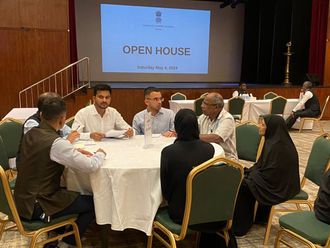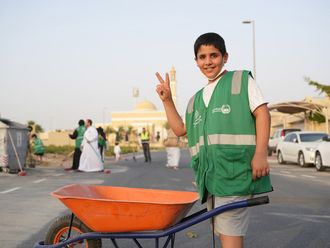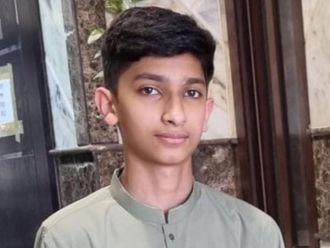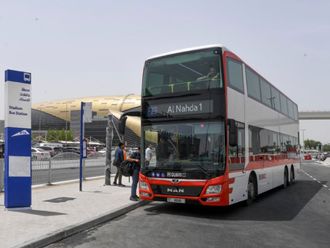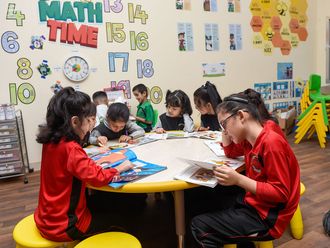Abu Dhabi: A tough anti-human trafficking law will help the UAE authorities fight all forms of this crime, said Lieutenant General Dahi Khalfan Tamim, Dubai Police Chief.
The law will deter organnised international gangs who attempt to harm this country, he told Gulf News on Friday. "It will bridge the gap in the UAE's legislations, which may have been exploited by these gangs."
Lieutenant General Dahi said the UAE has succeeded in stopping the practice of employing children as camel jockeys and with the help of this law it will effectively combat other forms of human trafficking.
President His Highness Shaikh Khalifa Bin Zayed Al Nahyan has issued a Federal Law on Combating Crimes of Human Trafficking, slapping stiff penalties against traffickers ranging from one year to life in prison and fines from Dh20,000 up to Dh1 million.
"The law criminalises severe forms of servitude, which will address trafficking in domestic servants in the UAE," said Dr Ushari Khalil, a former UN official and trainer on combating trafficking.
He warned that thousands of people in the country could be traffickers without them knowing it. "They are not aware that the way they treat their domestic servants such as denying them communication with others, toying with their salaries, as well as the illegal tricks employed by labour companies constitute servitude."
"Thousands of such persons should know today that they risk life imprisonment, particularly because almost all domestic servants are females," Dr Khalil said.
A life-imprisonment term is to be handed down to anyone implicated in human trafficking if the victim is a female, a child or handicapped, according to the law.
The law incriminates all forms of exploitation of humans and organised groups that intentionally commit these crimes. It incriminates organised groups that, through pre-meditation, commit these crimes, with the option of life imprisonment if the victim is a female, a child, handicapped or if the crime is perpetrated by those in a position of trust, such as relatives or public officials.
Dr Khalil said the passage of this law and treating victims of human trafficking in accordance with international standards should serve to remove the UAE from the American Tier Two 'Watch List' country.
The Sixth Annual Trafficking in Persons Report upgraded the UAE to a Tier Two 'Watch List' country, or a country that is vulnerable to losing ground on its human rights record.
Dr Mohammad Abdullah Al Rokn, a professor of law at the UAE University and a human rights activist, said the law is in keeping with the UAE's constitution and international conventions signed by the country.
Many human traffickers are never caught because their victims are too scared to go to authorities, he said.
"The law will encourage victims to report their tormentors to the authorities, which will also help rehabilitate these victims."


